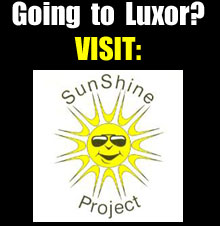
Medicinal Plants Project, St Catherine
If you have a morning free and want to learn more about St Catherine’s, you could do worse than to visit the Medicinal Plants Conservation Centre, located in the centre of town.
The cultivation of medicinal herbs and plants has long been at the horticultural heart of St Catherine’s and an integral part of Bedouin life in the region.
According to the MPCP website, some 47% of the desert’s flora in this region have “…medicinal, aromatic, cosmetic or culinary uses”.
And the Bedouin who care for them know them all, having accumulated a vast body of knowledge over the eons.
Indeed, for those that take the time to explore the wider St Catherine’s, there remain a multitude of immaculately kept gardens hidden in the otherwise arid wadis and mountains around the town.
Sadly, many of St Catherine’s herbs are under threat or near extinction (if not already) as the result of pressures from feral animals, poor farming practices and careless tourism
Step in the MPCP in 2003, a coalition of the United Nations Development Program (UNDP), the Global Environment Facility (GEF) and the Egyptian Environmental Affairs Agency (EEAA) with a mission,
“…to eliminate the root causes of the loss in biodiversity and to inhibit the threats to the conservation and sustainable use of the wild medicinal plants of Egypt”
This is achieved through a number of means including but exclusive to establishing an information database on the use of medicinal herbs, publishing an encyclopaedia of Egypt’s wild medicinal plants, reducing the impact/existence of associated threats and by the conservation and cultivation of critically endangered herbs.
One site for the conservation of such herbs in the MPA project here in St Catherine’s, where visitors can browse several greenhouses full of the afore mentioned flora.
Many of the plants will be familiar (in scent if not in name) to the herb savvy visitor, and just as many unknown and unique to this area of South Sinai.
Labels are provided in both English and Arabic and accompanied by their family name and current environmental status (e.g. endangered) in the region.
One of the site’s caretakers can provide additional information as to the plants’ known medicinal uses.
All visits must be pre booked.
You can do this through Sheikh Mousa Bedouin Camp, the MPA or by contacting Mahmoud Mansour, one of the curators of the project below.
See contacts in the resource box below.
For More Information:
The Medicinal Plants Conservation Project Website
St Katherine.net - All things St Catherine
Medicinal and Aromatic Plants
Mahmoud Mansour
Phone: (+20 (0) 12 640 0782




